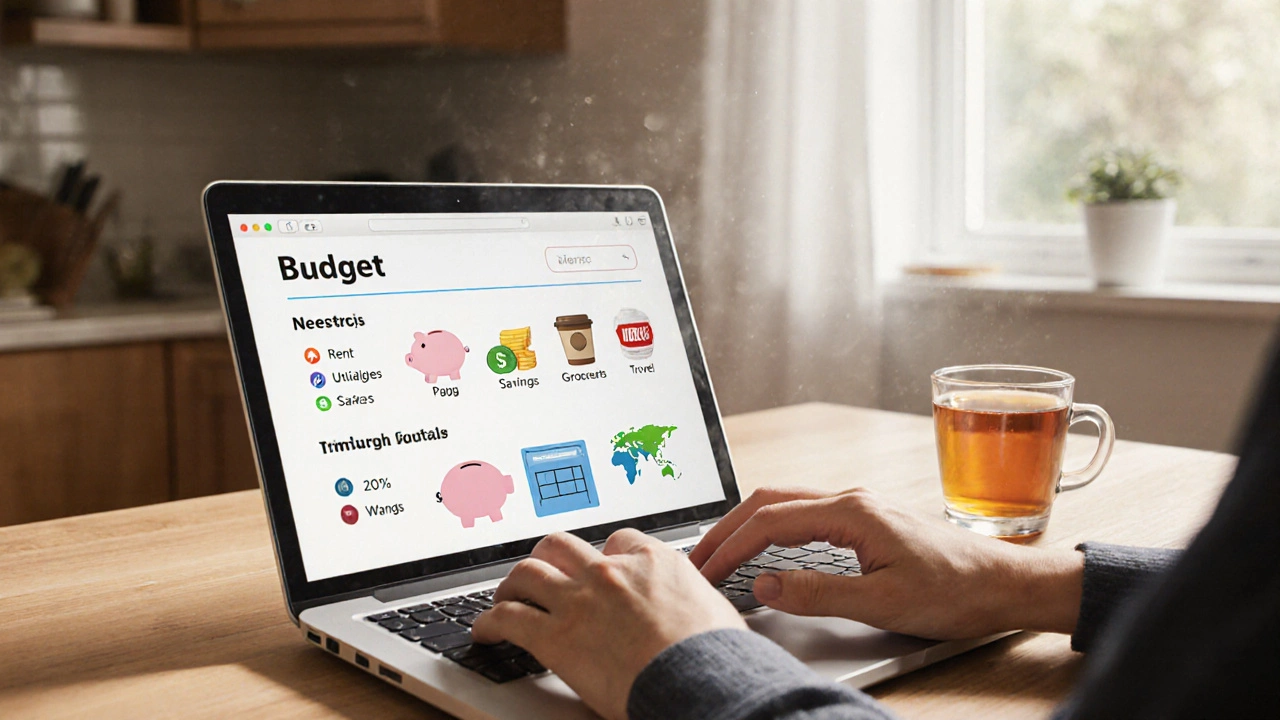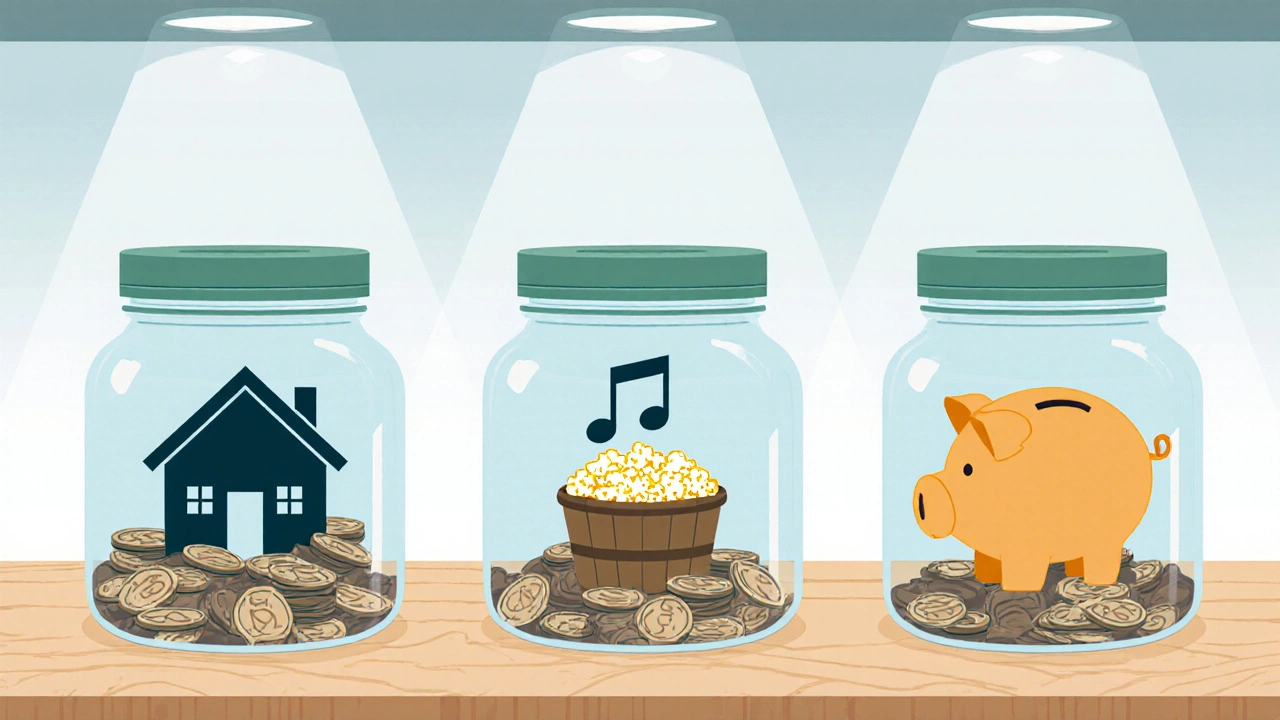What Is the Best Budgeting Strategy for Real Life in 2026?
The best budgeting strategy isn't one-size-fits-all. Learn which method-zero-based, 50/30/20, envelopes, or automation-fits your life in 2026 and actually sticks.
Feeling like your money disappears the minute it hits your account? You’re not alone. The good news is that a few straightforward tweaks can turn that stress into confidence. Below are real‑world budgeting tips you can start using right now, no fancy software required.
The first step isn’t a spreadsheet masterpiece; it’s simply listing what you earn and where it goes. Grab a notebook or open a basic spreadsheet and write down every source of income for the month. Next, pull your last three bank statements and note every expense – rent, utilities, groceries, transport, coffee, streaming services, and even the occasional treat. Seeing the numbers side by side often reveals hidden leaks.
Once you have the raw data, categorize the expenses into three buckets: needs (housing, food, transport), wants (dining out, hobbies), and savings/debt repayment. Aim for a rule of thumb – 50% of your take‑home pay for needs, 30% for wants, and 20% for savings or paying down debt. If the percentages look off, adjust the “wants” line first. Cutting back on a subscription you barely use can free up cash without hurting your lifestyle.
Don’t forget to budget for irregular costs like car maintenance or annual insurance premiums. Divide the annual amount by 12 and add that figure to your monthly plan. Treating these as regular expenses prevents surprise shortfalls when the bill arrives.
Now that you have a baseline, use a few proven hacks to stay on track. One of the easiest tricks is the cash envelope method. Withdraw the amount you’ve allotted for variable categories – groceries, gas, entertainment – and put each sum in a separate envelope. When an envelope is empty, that’s your signal to pause spending in that area until the next month.
Another game‑changer is automating savings. Set up an automatic transfer that moves a fixed amount from your checking to a savings account the day after payday. Because the money is out of sight, you’re less tempted to spend it, and you’ll watch your stash grow without effort.
When you shop, apply the 24‑hour rule. If you see something you want, wait a full day before buying. Most impulse purchases lose their appeal after a night’s sleep, and you’ll avoid buyer’s remorse.
Track your spending in real time. Even a simple phone note or a free budgeting app can remind you where each pound goes. Reviewing your expenses weekly helps you spot patterns early and make quick adjustments.
Finally, treat budgeting as a habit, not a chore. Celebrate small wins – like hitting your grocery target for three months straight – and use those wins as motivation to tackle the next area.
Budgeting isn’t about depriving yourself; it’s about giving yourself control. By setting up a realistic budget and plugging in a few smart habits, you’ll stop feeling surprised by your bank balance and start building the financial cushion you deserve.

The best budgeting strategy isn't one-size-fits-all. Learn which method-zero-based, 50/30/20, envelopes, or automation-fits your life in 2026 and actually sticks.

The first step in budgeting isn't cutting expenses - it's tracking every dollar you spend for 30 days. This simple habit reveals where your money really goes and sets the foundation for a realistic, lasting budget.

The 50/20/30 budget rule splits your after-tax income into 50% needs, 20% savings/debt, and 30% wants. It’s a simple, flexible way to manage money without feeling restricted.

Discover the simplest budgeting plan-the 50/30/20 rule. Learn how to calculate it, set it up in minutes, and compare it with other easy methods.

Learn the #1 budgeting rule-spend less than you earn-plus step‑by‑step actions, common pitfalls, method comparisons, tools, and FAQs to master personal finance.

Trying to manage your money can feel overwhelming, but the simplest budgeting method cuts through the confusion. This article breaks down how you can take control of your money in minutes with a no-stress approach. Find out why this method works, who it’s good for, and see real-life tips on putting it into action. Whether you’re just starting out or tired of budget headaches, this guide keeps things crystal clear. Forget complicated spreadsheets—see how easy budgeting can get.

Budgeting doesn't have to be daunting. The first rule? Spend less than you earn. This simple principle is the cornerstone of financial health, helping you avoid debt and save for the future. By tracking your expenses and staying mindful of your spending habits, you can start to make better financial decisions.

Earning $900 a week might sound different depending on where you live, your lifestyle, and financial goals. This article dives into whether $900 is considered a good weekly income today by examining living costs, budgeting strategies, and smart financial planning tips. It'll also give you a clearer picture of how to make the most of your money. Get practical advice on managing finances effectively, ensuring you're getting the best out of every dollar.

Leftover money, often called a surplus, arises when you have more cash than expected after budgeting. Understanding how to identify and manage this extra money can enhance financial security. Savvy handling includes saving, investing, or even spending wisely to boost future wealth. This article explores its identification, management, and practical use.

The 50 30 20 rule is a simple budgeting framework that helps individuals manage their finances efficiently. It allocates income into three categories: needs, wants, and savings or debt repayment. This method helps prioritize spending and fosters financial discipline, which is beneficial in managing and consolidating debt. By maintaining this balance, one can achieve financial stability and reduce liabilities over time.

Saving $100K by the age of 30 is a significant financial milestone that many aspire to achieve. This article explores whether this goal is attainable and beneficial, offering practical budgeting tips and insights into the financial landscape of millennials. It delves into the advantages of having such savings early on and the strategies that can help reach this target. It also weighs the benefits against opportunity costs and different financial priorities.

Creating a good budget involves understanding key aspects that make it effective and sustainable. This article explores three vital characteristics that define a strong budget: realism, flexibility, and clarity. With practical tips and insights, you'll learn how to implement these traits into your financial plan. Discover how these elements can help you achieve your financial goals with greater confidence. Dive in to start building a solid foundation for your financial future.